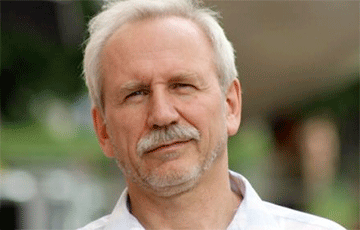Lukashenka’s Armenian Malaise
30- VALER KARBALEVICH
- 3.05.2018, 10:54
- 54,441

The Belarusian dictator is fretted more than anyone.
The new wave of public protests in Armenia makes Aliaksandr Lukashenka feel alarm which he cannot conceal.
Many expected that the protests would go down after the main demand of the protesters – the resignation of Armenian Prime Minister Serzh Sargsyan – would have been fulfilled. Moreover, immediately after that, the opposition leader Nikol Pashinyan announced: "There has been a change of power; power has passed to the people." If it were so, we could break up. But the further course of events confirmed the well-known truth that the appetite comes with eating. The situation unfolds so that the leader of the protests Nikol Pashinyan is now a step away from the post of prime minister. One can only imagine the growing alarm that the rulers of the post-Soviet states feel while watching all this.
Aliaksandr Lukashenka worries more than others. Usually he repeats in such situations, like a spell, that there will be no revolution in Belarus, or offers shelter to overthrown dictators.
During the speech in the "national assembly," Lukashenka repeatedly addressed to the Armenian events, and bundled together the denial of plans to hold a referendum with protests in Yerevan. Then he had telephone talks with Armenian President Armen Sarkissian, after which two BT journalists immediately flew there to see with their own eyes what was happening there. In addition, there was a telephone conversation between the Belarusian Prime Minister Andrei Kabiakou and the acting head of the Armenian government Karen Karapetyan. Then Lukashenka again mentioned the Armenian events during his speech in Zhytkovichy. All this shows that the Belarusian leadership is very alarmed.
It is interesting to note that this time the attitude of the ruler of Belarus towards the popular protest in Armenia turned out to be rather contradictory. On the one hand, he laid the blame for what is happening there on Serzh Sargsyan himself. Like, do not play unfair with the people. After retiring from the office, the Armenian leader amended the Constitution, turned Armenia into a parliamentary republic and became the prime minister, retaining the power.
Once Lukashenko cautiously rebuked Putin when the latter handed over presidential powers to Medvedev and became the head of the Russian government. And he called himself a "positive example." I, he said, played fair, "sincerely addressed" the people on the "referendum" and proposed to lift the restriction on the number of presidential terms.
But in his speech in Zhytkovichy another tune sounded. Like, the president of Armenia complained in a conversation: we missed the moment while there were 50 or 500 of these people who got paid for that, and then a wave began all over the country. That is, the ruler of Belarus concluded that they missed the moment and did not crush them in the bud.
A part from the Lukashenka's message, which directly relates to the events in Armenia, seems to have somehow gone unnoticed in independent media. And there the Belarusian leader called on the post-Soviet leaders to take preventive measures against the popular protests. Listen to his "cry of the heart":
"Do you think that we are not to blame for what happened in Armenia? Do you remember why the uprising burst there a year or so ago? When the government of Armenia raised the price of natural gas, energy, as if there was no other way out. And then they had to retreat. And what, you want to say that it didn't depend on us or on Russia?
And so that's how they will eliminate us one by one, at best, simply throw us out of this union. Instead of coming to our senses and solving these issues together, we begin to shirtfront each other and knock each other's teeth in."
Let me translate this bizarre tirade into an understandable language. It is necessary to create a system of collective protection of authoritarian regimes from popular revolutions, an anti-revolutionary union within the framework of the CIS. To not be knocked out one by one.
The idea is not new. Back in 2010, after the overthrow of Kurmanbek Bakiyev in Kyrgyzstan, Lukashenka appealed to the CIS Integration Association, say, why they did not react to the illegal change of power, why the CSTO was silent, why didn't it protect the ruling regime? First of all, of course, that was a reproach to Russia, which did not save authoritarian leaders in the CIS.
Did Lukashenka not learn anything from the experience of Ukraine? There, Russia tried to save the leader, who went bankrupt. He was placed under house arrest in Rostov, Ukraine lost a fair amount of territory, and the world was on the verge of war.
Valer Karbalevich, Radio Svaboda









